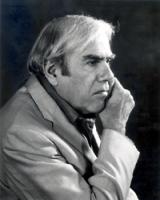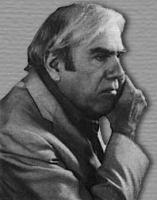Arthur Berger's Profile
Brief about Arthur Berger: By info that we know Arthur Berger was born at 1912-05-15. And also Arthur Berger is American Composer.
Arthur Berger Biography
- Arthur Victor Berger (May 15, 1912 - October 7, 2003) reffered by many as the " New Mannerist" of the Western Music, was a well-known American composer, teacher, writer, musicologist and music critic.
- He was born in Bronx, New York, to a Russian-Polish Family of Jewish descent and studied composition at New York University, where he graduated in 1934 as a member of the Young Composer's Group. He cdontinued his studies at a conservatory at Longly School at Cambridge, Massachusetts in 1935-37. At a young age he became a pupil to Western Music's artisans like the American Classical Music compose, Walter Piston, who was his professor while taking up Master's degree in Harvard University; the French composer that taught the leading composers of the 20th Century, Nadia Boulanger at Sorbonne (University of Paris) at France under a Paine Fellowship and Darius Milhaud, a French composer, at Mills College, Oakland, where he finished his studies.
- Early in his career he pursued to be an educator and took a campus job in Mills College and Broklyn College. In 1940's he then started composing musical scores. He was fascinated by the works of accalaimed composers and retained certain aspects of their style to his works such as the rhythmically pointed style and textual clarity of Igor Stravinsky; the brisk and neo-tonal range of ARnold Schoenberg and the serial and tonal scores of Anton Webern. These array of vertical and horizontal musical spaces can be seen in his compositions like The Serenade Concertante (1944) and Three Pieces for Strings (1945). He eventually became a music critic in the late 1940's and early 1950's while working at New York Sun, New York Herald and Boston Transcript. In 1953, he then left the paper industry and taught of Julliard School in New York and Brandeis University, Massachusetts where he was named "Irving Fine, Professor Emeritus".
- In the middle of 1950's he invented a fusion of his won, never quite eliminating the old tonal shapes and rhetoric style. He called it the "Neoclassic Twelve-tone." He embraced this style in his later works like the Ideas of Order, Polyphony, Quartet for Winds(1958), Five Pieces for Piano(1969) and Septet(1965-66). Another key element of his work is the inclusion of orchestral, chamber, piano and vocal music, considered unique at its time.
- As a critic Berger's analytical criticism focused abstraction, timbre, texture, heritage and pitch relations. Ironically, these influenced much the work of young universities composers than his own. In 1962, he co-founded with Benjamin Boretz what is aid to be the heaviest and most notorious of all jusicological journals, Perspective Of New Music. He was the first to write about aspects of Stravinsky's harmony in 1963 and paved way to a mode of description that made a profound impact on analytical methods in futire literatures.
- He was then elected a Fellow of the American Academy of Arts and Sciences in 1971 and wrote books. He also coined the terms octanic scale and pitch centricity in "Problems of Pitch Organization in Stravisnky."
- In 1979, he became a composition professor of the New England Conservatory in Boston, from where he retired in 1998 at age 86. He spent his final days in his humble home at Boston and died at age 91 with the caus of death unspecified.
Related topics
- Hans Berger
- John Berger
- Peter Berger
- Peter L. Berger
- Phil Berger
- Philip E. Berger
- Sandy Berger
- Thomas Berger
- Cyrano de Bergerac
- Tom Bergeron













